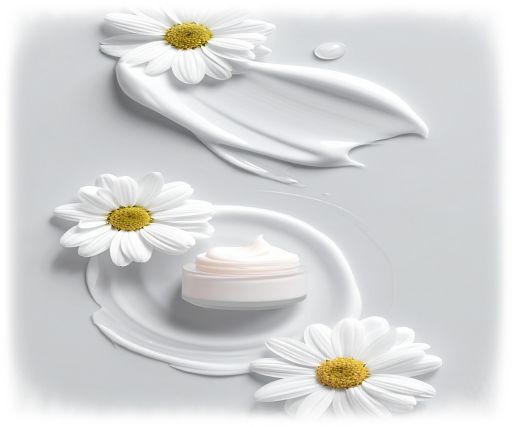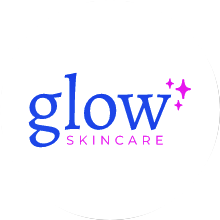Best Anti-Ageing Skincare Routine for Every Skin Type
As you reach your 30s, your skin begins to tell a story — one that includes laughter, late nights, stress and maybe a few sun-soaked memories. It’s the perfect time to give your skin the care it truly deserves. Choosing the right anti-ageing skincare products can make a world of difference, especially when tailored to your specific skin type.
Note: This Page was last updated on Wednesday 11th of February 2026

This guide will help you discover what your skin needs most and how to build a smart routine that keeps your complexion glowing, hydrated and youthful — no matter your skin type.
Why Skin Changes After 30
After your 30th birthday, your skin’s natural collagen production slows down, cell renewal takes longer and moisture levels drop. This is when fine lines, dullness and uneven texture start to appear. But the good news? You can absolutely prevent premature ageing by choosing targeted skincare that supports renewal, hydration and protection.
Pro Tip: It’s never too late to start an anti-ageing routine. Consistency beats perfection — your skin loves small, daily acts of care.
1. For Dry Skin: Nourish and Lock in Moisture
Dry skin tends to look older faster because it lacks the natural oils that keep it soft and supple. The goal here is deep hydration and barrier repair.
What your skin needs:
- A gentle, creamy cleanser (avoid foaming ones)
- A hyaluronic acid serum to attract moisture
- A rich moisturizer with ceramides or shea butter
- Sunscreen with hydrating ingredients like glycerin or squalane
A. Gentle Cream Cleanser
Use a creamy cleanser enriched with hyaluronic acid or glycerin. This type of cleanser removes impurities without stripping natural oils. Use your fingertips to work the cleanser in soft, circular motions, then wash it away with comfortably warm water—never too hot, never too cold. Avoid harsh foaming cleansers that can exacerbate dryness.
B. Hydrating Serum
Apply a serum with hyaluronic acid, peptides or vitamin C. These ingredients help plump the skin, minimize fine lines and provide antioxidant protection. Use 2–3 drops on the face and gently pat it in. For extra hydration, layer a lightweight serum in the morning and a richer serum at night.
C. Rich Moisturizer
Choose a nourishing moisturizer or night cream containing shea butter, ceramides or squalane. This helps lock in hydration and protects the skin barrier. Apply evenly across the face and neck.
D. Sunscreen (SPF 30+)
Hydration alone isn’t enough—daily sunscreen protects dry skin from UV damage, preventing premature ageing. Look for moisturizers with SPF or apply a separate hydrating sunscreen every morning.
Recommended anti-ageing skincare products for dry skin:
- Hydrating serums: Look for multi-weight hyaluronic acid formulations.
- Barrier creams: Ceramide-rich moisturizers that help rebuild elasticity.
- Night repair masks: These restore moisture overnight, leaving skin plump by morning.
Pro Tip: Apply your moisturizer on slightly damp skin to “seal in” hydration more effectively.
Common Mistake: Using products with alcohol or fragrance — they strip the skin further and accelerate dryness.
2. For Oily Skin: Balance, Don’t Strip
People with oily skin often skip moisturizers — big mistake! While it’s true that your skin produces more sebum, oil ≠ hydration. You still need moisture, but in a lightweight, non-comedogenic formula.
What your skin needs:
- A gentle gel cleanser with salicylic acid to unclog pores
- A niacinamide serum to regulate oil production
- A lightweight moisturizer (gel-based or oil-free)
- A matte, broad-spectrum SPF
A. Gel Cleanser
Use a lightweight gel cleanser to remove excess oil without over-drying. Cleanse twice daily for optimal results. Ingredients like salicylic acid can help keep pores clear.
B. Lightweight Serum
Water-based serums enriched with antioxidants or peptides are perfect for oily skin. They hydrate without adding extra oil or weight.
C. Oil-Free Moisturizer
Even oily skin needs hydration. Choose an oil-free, non-comedogenic moisturizer to maintain the skin barrier and prevent excess shine.
D. Matte Finish Sunscreen
An oil-free SPF protects your skin from UV rays while keeping your complexion matte. Look for formulas labeled “non-comedogenic” to prevent breakouts.
Best anti-ageing products for oily skin:
- Niacinamide serum: Reduces enlarged pores and improves texture.
- Retinol (0.3–0.5%): Helps with fine lines without causing heavy peeling.
- Oil-free moisturizers: Keep your skin balanced without the shine.
Pro Tip: Use blotting papers or mattifying powders only when needed. Over-mattifying can signal your skin to produce more oil!
Common Mistake: Over-cleansing or skipping SPF because “skin feels greasy.” SPF is non-negotiable — even for oily skin types.
3. For Combination Skin: Find the Perfect Middle Ground
Combination skin can feel like two different faces — oily on the T-zone, dry on the cheeks. The trick is balancing both needs without overloading the skin.
What your skin needs:
- A pH-balanced foaming cleanser
- A light hydrating serum with hyaluronic acid and niacinamide
- A moisturizer that’s light enough for oily areas but nourishing for dry zones
- Broad-spectrum SPF with a satin finish
Recommended anti-ageing skincare products for combination skin:
- Dual-action serums: Contain both hydration and oil-regulating ingredients.
- Gel-cream moisturizers: Perfect balance for both zones.
- Vitamin C serum: Brightens uneven tone while protecting from environmental damage.
Pro Tip: You don’t have to use the same product everywhere. Apply a lighter gel moisturizer on the T-zone and a creamier formula on dry areas.
Common Mistake: Ignoring your cheeks. Over-treating oil often leads to dehydrated patches that make fine lines appear deeper.
4. For Sensitive Skin: Calm and Protect
If your skin reacts easily, go for mild, unscented products that soothe and protect your barrier instead of stressing it out. Your goal is to soothe inflammation and strengthen the skin barrier.
What your skin needs:
- A non-foaming, creamy cleanser with oat or chamomile extract
- A calming serum with centella asiatica or panthenol
- A rich, fragrance-free moisturizer
- A mineral sunscreen (zinc oxide or titanium dioxide)
A. Fragrance-Free Cleanser
Select a soft, fragrance-free cleanser that effectively removes impurities without causing redness or irritation. Avoid harsh scrubs or acidic cleansers.
B. Low-Irritation Serum
Choose serums containing peptides, antioxidants or niacinamide. These ingredients reduce inflammation while providing anti-ageing benefits.
C. Hypoallergenic Moisturizer
Night creams should be gentle and calming, containing ingredients like aloe vera, chamomile or ceramides. They support the skin barrier and promote overnight repair.
D. Physical Sunscreen (Mineral SPF)
Use a zinc oxide or titanium dioxide sunscreen to protect sensitive skin from UV damage. Physical sunscreens are less likely to cause irritation than chemical options.
Best anti-ageing skincare products for sensitive skin:
- Peptide creams: Stimulate collagen gently without irritation.
- Azulene or oat-based masks: Help reduce redness and calm sensitivity.
- Fragrance-free SPF: Shields skin without stinging or breakouts.
Pro Tip: Always patch test new products. Even the gentlest anti-ageing formula can cause irritation if overused.
Common Mistake: Using “natural” essential oils directly on the skin — many can actually increase sensitivity.
Weekly Skincare Boosters for All Skin Types
- Face Masks: Hydrating or calming masks tailored to your skin type.
- Exfoliation: 1–2 times per week to remove dead skin cells and improve absorption of serums and moisturizers.
- Facial Massage / Gua Sha: Boosts blood circulation, improves lymphatic drainage and promotes a more radiant complexion.
Pro Tip: Even a 5-minute facial massage in the evening can enhance serum absorption and relax facial muscles, reducing early signs of ageing.
Lifestyle Habits That Boost Any Anti-Ageing Routine
Great skin doesn’t just come from bottles — it’s also about your daily habits. Here are simple but powerful changes you can make:
- Sleep: 7–8 hours per night helps your skin regenerate.
- Diet: Include antioxidants like berries, leafy greens and healthy fats.
- Hydration: Drink enough water to support skin elasticity.
- Stress management: Chronic stress accelerates collagen breakdown.
- Consistency: Results take time — usually 6–8 weeks of steady care.
Remember: Glowing skin isn’t about perfection — it’s about how you feel when you look in the mirror.
Quick Skin Type Reference
|
Skin Type |
Cleanser Type |
Serum Focus |
Moisturizer Type |
Sunscreen Type |
| Dry | Creamy, gentle | Hyaluronic acid, vitamin C | Rich, nourishing | Hydrating SPF 30+ |
| Oily | Gel-based, oil-control | Water-based, antioxidants | Oil-free, lightweight | Matte, non-comedogenic |
| Sensitive | Fragrance-free, soft | Peptides, niacinamide | Hypoallergenic, calming |
Mineral SPF |
FAQ Section — Anti-Ageing Skincare After 30
Q1: What is the best anti-ageing skincare routine after 30?
A1: Focus on cleansing, hydration and protection. Use a gentle cleanser, antioxidant serum, moisturizer and SPF every morning. At night, add retinol or peptide-based products to support cell renewal.
Q2: Which ingredients are most effective for anti-ageing?
A2: Look for ingredients like retinol, hyaluronic acid, niacinamide, peptides and vitamin C. These promote collagen production, improve skin texture and reduce fine lines over time.
Q3: How often should I exfoliate my skin after 30?
A3: Exfoliate 1–2 times per week with a mild chemical exfoliant like glycolic acid or lactic acid. Over-exfoliating can damage your skin barrier and cause dryness or irritation.
Q4: Can oily skin also use anti-ageing creams?
A4: Absolutely. Choose oil-free or gel-based moisturizers with antioxidants and retinol. These help control sebum production while minimizing wrinkles without clogging pores.
Q5: How can I prevent wrinkles naturally?
A5: Stay hydrated, eat antioxidant-rich foods, get enough sleep and always wear sunscreen. Natural oils like rosehip or squalane can also support skin elasticity.
Q6: When should I start using anti-ageing products?
A6: It’s best to start in your late 20s or early 30s, before deep wrinkles appear. Prevention is easier than correction — consistency matters more than age.
Conclusion: Find Your Perfect Anti-Ageing Match
Whether your skin is dry, oily, combination or sensitive, there’s a perfect routine waiting for you. The key is understanding what your skin truly needs — and choosing anti-ageing skincare products that nourish rather than overwhelm.
If you’re ready to take your first step, explore our hand-picked, dermatologist-approved recommendations for your skin type — tested, safe and designed to help you love your skin at every age!
Discover our top anti-ageing serums for dry skin
Shop oil-free moisturizers for oily skin
Check out our complete anti-ageing skincare kit






